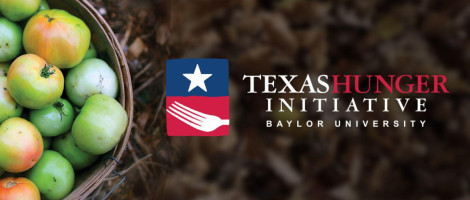Afterschool meals important for students, and churches can help
by Guest Author on September 8, 2016 in CLC

By Ruben Sanchez
The summer is over and school is back in session. In Texas, that means football is kicking off, temperatures are dropping, and many kids still don’t have adequate access to food.
In Texas, one in four children is food insecure. This means a fourth of the children in Texas live in households that may have to skip a meal or make a difficult choice like deciding between buying food or buying school supplies for the start of a new school year (a true story recently told to me).
Ensuring children have access to three healthy meals a day, seven days a week is a daunting task. Schools across the state are making significant efforts to solve the problem. They offer lunch and breakfast, but that still often leaves students without an option for a meal at the end of the day. Schools recognize this need, but districts often do not have the resources to offer the USDA’s Afterschool Meals program.
In my time with the Texas Hunger Initiative, I’ve heard too many stories from school administrators about how they want to offer afterschool meals but are constrained by budgets and schedules. I’ve talked with teachers who know their students leave school and go home by themselves because their parents aren’t off work yet, leaving the students to prepare their own food. Cafeteria staff have also told me how students devour their breakfasts because they are so hungry when they get to school. My list of stories is never ending, and the theme is always the same — students need better access to meals after school.
Schools can’t do it alone. It’s up to local organizations — nonprofits and congregations — to support our schools and our children. afterschool programs need partners to connect with and to help facilitate the Afterschool Meals program.
Supporting this program is a way you can have a direct impact on the health and lives of the children in your community — and anyone can help. If you support a nonprofit, encourage it to connect with an afterschool program. If you’re a member of a church, explore ways your congregation can support a local school. If you run a community organization, look into sponsoring an afterschool meal site.
Now is the time we need to take action. Now is the time for us to truly care for our neighbors. If we don’t, a generation of children will grow up lacking the nutrition needed for an active, healthy lifestyle. But, if we step up, if we act, we can provide food for our children and help them learn and grow in an environment where they can thrive.
To find your local Hunger Initiative office visit baylor.edu/texashunger to find out how you can get started.
Ruben Sanchez is the El Paso regional director for Baylor University’s Texas Hunger Initiative. Before coming to the THI, Sanchez spent almost six years with West Texas Food Bank. He is a native of El Paso and lives there with his wife and 11-year old daughter. To contact Sanchez, or the Texas Hunger Initiative office nearest you, visit texashunger.org.
Texas Baptists is a movement of God’s people to share Christ and show love by strengthening churches and ministers, engaging culture and connecting the nations to Jesus.
The ministry of the convention is made possible by giving through the Texas Baptists Cooperative Program, Mary Hill Davis Offering® for Texas Missions, Texas Baptists Worldwide and Texas Baptist Missions Foundation. Thank you for your faithful and generous support.
Subscribe to receive stories like this one directly to your inbox.
We are more together.